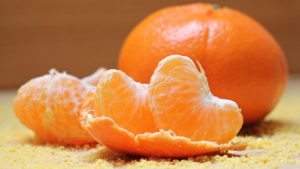As COVID-19 continues it’s spread around the globe, most health officials are advising the public to stay at home whenever possible and practice social distancing when they must leave their home in order to help ‘flatten the curve’. Some cities and even entire counties are on complete lock down. But will this be enough to avoid getting sick? Read on to learn how to avoid COVID-19, as well as how to naturally strengthen your immune system, and lessen your overall fibromyalgia symptoms in order to help fight off anything that comes your way. Stay as healthy as possible!
What is “Flattening the curve.”
When the spread of a virus slows and the number of people in need of treatment is reduced and fewer individuals become hospitalized at any given time, it’s known as “flattening the curve.” The “curve” researchers are talking about refers to the projected number of people who will contract COVID-19 over a certain period. “Flattening” refers to lowering the number of new cases so that hospitals aren’t as overwhelmed and less stress is placed on the health care system.
There’s No Place Like Home

While you may think that staying home is an obvious precautionary measure, many people don’t realize just how important it can really be, not just for your own health but for the health of everyone, especially those who are more susceptible or immunocompromised, such as those with underlying health conditions and the elderly. We must also protect our essential workers such as doctors, nurses, grocery store employees and postal workers. You can’t acquire or spread the virus if you stay home, it’s as simple as that.
If you must leave your house because of an emergency, to go to work or to purchase food, practice social distancing. Ottawa Public Health is now recommending that all residents of the city of Ottawa Ontario practice physical (social) distancing. Physical distancing involves taking steps to limit the number of people you come into close contact with. They say that this will help to limit the spread of COVID-19 in the community.
Wash your hands often

Again, while this may seem obvious, according to the Canadian Center for Occupational Health and Safety (CCOHS), hand washing is the single most effective way to prevent the spread of infections. Germs can be spread by merely touching another person and you can also catch germs when you touch contaminated objects or surfaces and then touch your face. COVID-19 is thought to last hours on many surfaces, up to 24 hours on cardboard and up to two to three days on plastic and stainless steel.
When washing your hands, it is important to use a quality disinfecting soap if possible and work up a good lather. Scrub your hands and in between your fingers for a minimum of 20 seconds before rinsing with warm water. A great way to know its been a full 20 seconds is to sing the happy birthday song twice or the ABC’S once through in your head, or out loud… why not! This is actually a great way to get your kids to do it right.
Once you’re done washing, do not turn off the tap right away as this will only transfer the germs that are on the tap onto your newly cleansed hands; after all, our hands are dirty when we first turn on the tap. Wet skin is also more likely to transfer germs then dry skin. Instead, thoroughly dry your hands first; if using paper towel, you can use some paper towel as a barrier to turn off the tap when you’re done. If a sink isn’t available, hand sanitizer is the next best thing, just make sure in contains at least 60% alcohol.
Wear a protective mask

While it may not be the most fashionable looking accessory, a proper face mask can sometimes make the difference between getting sick and staying healthy when you leave your home. Researchers have concluded that the virus could remain airborne up to 3 hours post aerosolization. This is one of the reasons why maintaining a physical distance of at least 2 meters from other people is so important, especially when indoors.
Coughing, however, can spread tiny droplets as far as six meters, and sneezing as much as eight meters. These droplets stay suspended in the air for up to 10 minutes. If you’re experiencing cold or flu-like symptoms and think you may have COVID-19, avoid direct contact with other people, call ahead and get tested. Be sure to cough and sneeze into your sleeve, never your hands. Click here for a list of symptoms to watch out for and treatment information.
Boosting Your Immune System
You should not wait until COVID-19 strikes to start incorporating products or habits into your life that can help strengthen your immune system. In fact, it’s better to start as soon as possible, so that your body is more prepared. This is especially important if you are over 65 years of age, have a pre-existing respiratory or heart condition or are a diabetic. This is also a good idea for those that experience the common systems associated with fibromyalgia such as extreme fatigue, inflammation and chronic pain. For tips on how to reduce pain naturally, click here.
Vitamin C

Vitamin C, also known as ascorbic acid, is a powerful water-soluble vitamin that is packed with antioxidants. These antioxidants help protect our body against the damage caused by free radicals and has been shown to offer protection against immune system deficiencies among many other things. Because our bodies can’t produce vitamin C, it’s essential we obtain enough through our diets. Excellent food sources include broccoli, cauliflower, kale, tomatoes, red, green or yellow pepper, sweet potato, strawberries and kiwi.
Zinc
Did you know that second to iron, zinc is the most abundant trace mineral in your body? And not only has research shown zinc to be a natural immune system booster but it may also shorten the duration of colds that are caused by a type of virus called rhinovirus. Although supplements are normally not recommended for long term, it may be something to consider for a short time, if you develop cold or flu like symptoms. The bioavailability of zinc increases when it is taken with vitamin C. Be sure to discuss this supplement with you doctor first.
Elderberry
You may have seen many teas, lozenges and syrups made from the elderberry plant on the market. The truth is, knowledge about Elderberry’s ability to fight upper respiratory infections and boost immunity has been around for hundreds of years. Elderberry works by delivering the body antioxidants and boosting it’s natural immune response. Elderberry syrup has also been shown to lessen the severity and duration of the common flu. It may be worth taking an elderberry supplement, with your Doctor’s okay of course.
Eat healthy

Eating a healthy well-balanced diet can have an enormous impact on your immune system. Sugar causes an inflammatory response in the body and is associated with an increased risk of type 2 diabetes, heart disease, cancer and weight gain. Avoid excess sugar, artificial sweeteners, refined carbohydrates and trans fat. Be sure to include fruits, vegetables, good sources of protein and healthy fats into your meals. This may seem difficult, especially when it’s not so easy to get to the store these days, but it’s definitely worth the effort.
One way to ensure you can eat healthy and have your groceries last longer is to purchase canned goods or frozen food. Canned salmon, for example is high in omega 3 as well as a great source of vitamin D, is usually wild caught, often come in PBA free cans, cost much less than buying fresh and can be stored in the cupboard for months. Frozen veggies are a good alternative to buying fresh. Many of the vitamins are retained when vegetables are frozen and can be stored in the freezer for 8 to 10 months if its kept at a constant temperature.
Get your sleep
One of the best ways to boost your immune system is to be sure to get enough rest. A lack of sleep can have a huge impact on your immune system. Studies show that people who don’t get quality sleep or enough sleep are more likely to get sick after being exposed to a virus and if you do become ill, a lack of sleep can affect your speed of recovery. Adults should aim for eight hours of quality sleep a night and children should get at least ten or more hours a night. For more information on this, including ways to help you fall asleep and stay asleep, click here.
Reducing Stress

This can be a particularly stressful time for many individuals around the world, from worrying about ourselves and our loved one’s getting ill to potential job losses and general uncertainty about the future. Also add the fact that we are pretty much obligated to isolate ourselves from the world and it’s no wonder many of us are feeling negative emotional effects. Unfortunately, stress can take a toll on your immune system and overall health. Here are some things that may help with your stress level and make the next few days, weeks or months a little more bearable.
Meditation and Exercise
Not only can meditation be calming and relaxing, it can help control or reduce stress, alleviate anxiety and improve your overall sense of well being. It’s best to try meditation in a comfortable place when your house is quiet. Listening to music you enjoy can also put you in a great mood and refocus your attention on the performance rather than what you may be worrying about. Aromatherapy is also a great way to induce relaxation as is deep breathing exercises, stretching and yoga. These thing also have the added potential benefit of helping you fall asleep.
Vitamin D and UVB
Vitamin D supplementation has been shown to help individuals deal with their stress levels by helping to manage depression, and because of it’s association with decreased levels of the stress hormone cortisol. On the other hand, stress can also have a negative impact on vitamin D levels. Deficiency in vitamin D is associated with increased autoimmunity and an increased susceptibility to infection.
You should still go outside for exercise, sunlight and fresh air. UVB produces vitamin D in the skin, and right now, at least most of us are probably spending more of our time indoors. This is often a problem in the winter because the further up north you live, the less UVB reaches you. This lack of UVB can lead to feelings of sadness, depression or even Seasonal Affective Disorder (SAD) in some individuals. In certain cases, light therapy may be worth trying. Click here to learn more about SAD and what you can do about it.
Stay in touch and try new things

Just because we are spending more time at home doesn’t mean we can’t or should not communicate with our friends and loved ones. Call your family and friends regularly. Conversing with those you are close to when you are both going through a similar situation may increase your bond, strengthen your friendship, lift your mood and leave you feeling less isolated.
If you have more free time on your hands, this may be a good opportunity to finish that book you never had time for before, take an online course, order an adult colouring book or learn a new language. If you have kids, try a family board game or a movie night to pass the time. These things can not only offer a much needed distraction, keeping your mind off worrisome things like viruses but will give you and your family something fun to do while you are stuck indoors, thus potentially lowering your stress level.
Remember… This Will End
While it may be difficult to believe right now. This will end. COVID-19 will be defeated. We will be able to do the things we used to enjoy like dining in restaurants, going to movie theaters and cheering at sporting events. In the meantime though, stay home and stay safe. I hope you enjoyed this article on how to avoid COVID-19 and keeping yourself as healthy as possible.
If you have any other suggestions on how to avoid illness or ways to naturally boost the immune system, or if you would like to see more information about the effect COVID-19 has on fibromyalgia, please let us know in the comments section below. Thank you for stopping by and take care.

Well timed and essential information for staying safe and free of not just covid 19 but other coronaviruses as well! I think sleep and exercise is really important and something some folks are missing at this point. Some cities are enforcing stay at home orders and preventing routine walks and movement outside of homes so everybody should think about a vitamin D supplement in addition to vitamin C. Stay safe everyone!
robertmccarty,
Thank you for the comment. Yes, many of us are worried about COVID-19 and for good reason. The best advice, above all else is to stay safe at home as much as possible.
Have a great day!